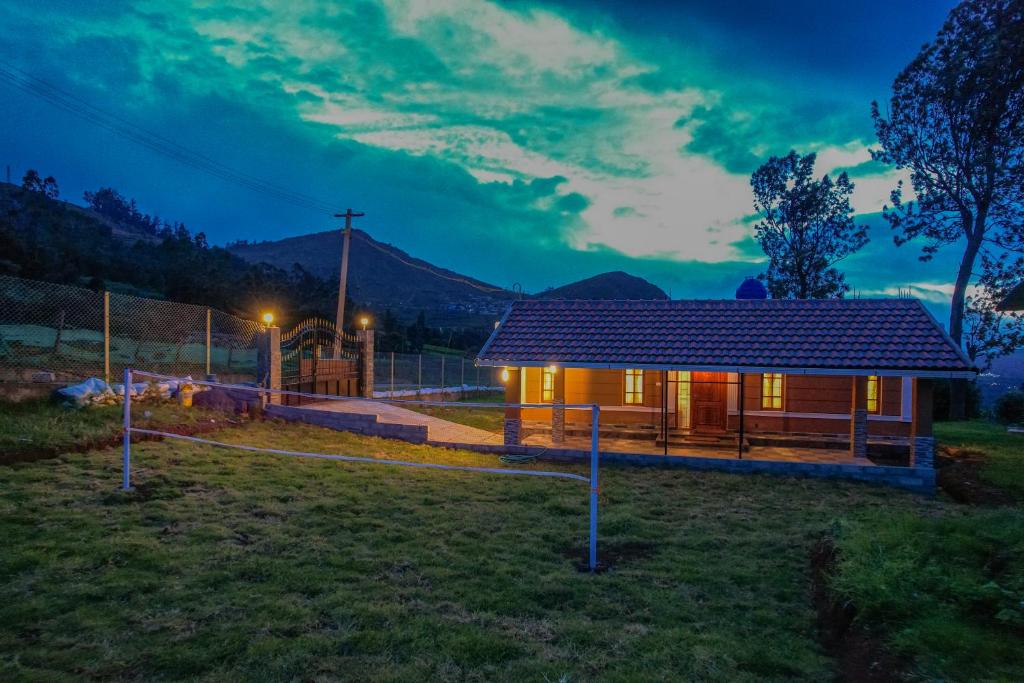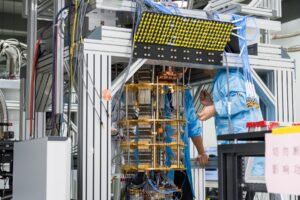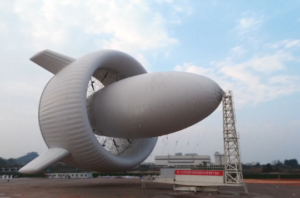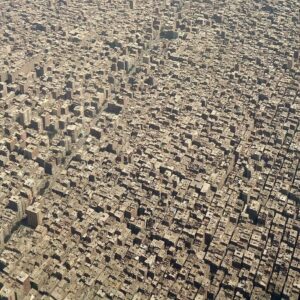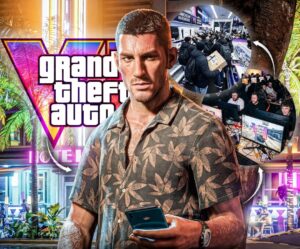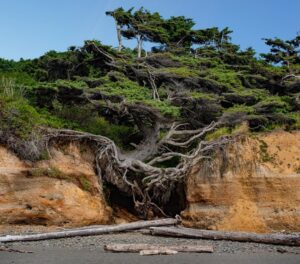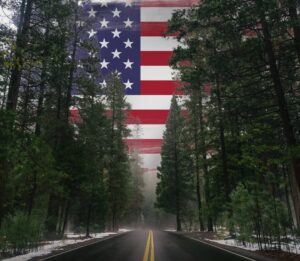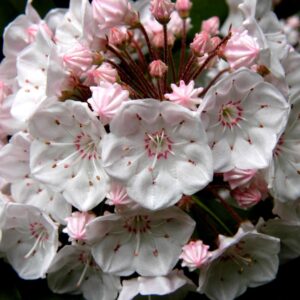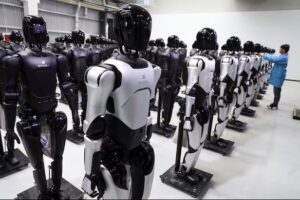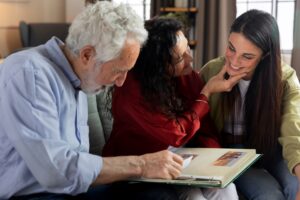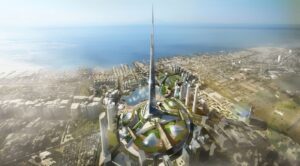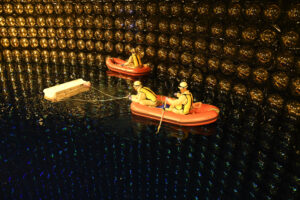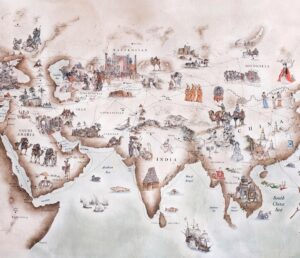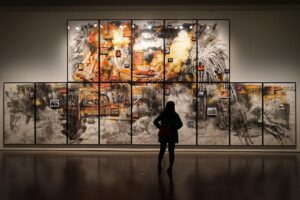 Pin
Pin Photo courtesy of Pexel
The world turned upside down in the last few generations, and most of us didn’t notice it happening. Your great-grandmother could walk to the well, pull up a bucket of cold water, and drink without fear. She’d stroll through her village at twilight, greeting neighbors, feeling the earth beneath her feet. Her food came from soil she knew, her clothes from hands she could see working. She wasn’t wealthy, but she wasn’t trapped either.
“We have built golden cages and convinced ourselves they are palaces.” That shift happened so gradually that we mistook each new dependency for progress. The factories that brought us jobs also poisoned the wells. The cars that promised freedom rebuilt our cities into concrete mazes where walking became dangerous. The careers that offered wealth pulled us away from the people and places that made us whole. Now we find ourselves paying for things that used to be as free as breathing—clean water, safe passage, human connection, meaningful work. We designed this world with our own hands, and somehow locked ourselves inside it.
Table of Contents
The Water We Once Trusted
A century ago, groundwater was a gift that required nothing but a bucket and some rope. Villages grew around springs and wells because the water running beneath their feet was clean enough to drink without a thought. Children splashed in streams during summer, and nobody worried about what invisible dangers might be lurking. The earth filtered water through layers of sand and stone, doing the work that now requires electricity and expensive machinery.
Then we got clever. Factories dumped their waste into rivers. Cities poured sewage into the ground. Farms soaked the soil with chemicals to grow more, faster, cheaper. Plastic crept into everything, breaking down into pieces so small they now flow through underground streams like some kind of modern curse. “The well runs deep, but poison runs deeper,” and we’re the ones who poured it there. Now a water purifier isn’t a luxury in most cities—it’s the barrier between you and sickness. We created the contamination, then sold ourselves the cure. The ground still holds water, same as it always did, but we can’t trust it anymore because we broke that ancient contract between earth and thirst.
The Streets That Forgot Walkers
Walking used to be the natural state of getting around. Your legs carried you to the market, to your neighbor’s house, to the fields where you worked. Streets belonged to people first—children played there, vendors sold there, conversations happened there. A town was built at the scale of human feet, with everything you needed within a comfortable distance. The rhythm of walking kept bodies strong and minds clear, and nobody needed to schedule exercise because movement was woven into every single day.
Then the automobile arrived, and we didn’t just add cars to our streets—we redesigned everything around them. Roads grew wider and faster. Sidewalks shrank or disappeared completely. Shops spread out into distant malls surrounded by parking lots the size of farms. Highways cut neighborhoods in half like scars that never healed. “When speed became king, the walking man became a beggar on his own road.” Now try crossing a six-lane street in most cities and you’ll understand how hostile we’ve made the world to anyone on foot. The car transformed from convenience to necessity because we built a landscape where walking became impractical, unsafe, or simply impossible. We didn’t lose our ability to walk—we buried it under asphalt and called it progress.
The Food That Forgot Its Roots
There was a time when food came from places you could see with your own eyes. Your family’s land, your neighbor’s orchard, the village common where animals grazed. People planted seeds in spring, tended them through summer, and harvested when autumn arrived. They knew the soil, understood the seasons, and ate what grew naturally in their region during its proper time. Food wasn’t just fuel—it was a conversation between earth, weather, and human hands. The work was hard, yes, but it connected you to something real, something that made sense in your bones.
Then we decided farming should happen far away, done by strangers, managed by corporations. Fields turned into factories. Vegetables traveled thousands of miles in refrigerated trucks. Seasons stopped mattering because supermarkets offered strawberries in December and apples year-round. We gained convenience but lost the knowledge of how food actually grows. “The hand that cannot plant has forgotten why it eats.” Now most people couldn’t grow a tomato if their life depended on it, and in some ways, it does. We’re entirely dependent on a fragile chain of trucks, warehouses, and global shipping. One disruption and grocery shelves empty within days. We traded self-reliance for specialization, and the cost was knowing how to feed ourselves when the system stumbles.
The Air We Learned to Fear
Breathing used to be the one thing you never had to think about. You opened your window in the morning, and fresh air filled your lungs without question. Children played outside from sunrise to sunset, their faces turning brown under the sun, their lungs expanding with clean oxygen. The wind carried the smell of grass, rain, and woodsmoke—natural scents that connected you to the world around you. Nobody wore masks unless they were sick, and even then, rarely. The sky was something you looked up at with wonder, not worry.
But progress brought smokestacks and exhaust pipes. Factories belched gray clouds that settled over cities like unwanted blankets. Cars multiplied until their fumes became the background smell of urban life. Construction dust, industrial chemicals, and particles too small to see turned the air into something that slowly damages us with every breath. “The sky still stretches infinite above us, yet we’ve learned to poison what we cannot see.” Now air purifiers hum in bedrooms. Weather apps warn you when it’s unsafe to breathe outside. Parents keep children indoors on bad air days, which somehow became a normal phrase in our vocabulary. We created an atmosphere where the simple act of breathing carries risk, then convinced ourselves that buying filters and checking air quality indexes is just part of modern living. The irony cuts deep—we needed clean air to survive, so we invented machines that dirtied it, then sold ourselves machines to clean it again.
The Distance Between Work and Home
Not so long ago, work happened where you lived. The farmer worked his own land. The carpenter had a shop attached to his house. The teacher lived in the village where she taught. Your workplace was a short walk away, maybe in the next room, maybe down the street. This wasn’t just convenient—it meant your children grew up watching you work, learning your trade by proximity. Your neighbors knew what you did because they saw you doing it. Lunch happened at your own table. When the sun set, you were already home. Work and life weren’t separate kingdoms requiring passports to cross between them.
Then the industrial age arrived and split everything apart. Jobs moved to factories in distant cities. Offices clustered in downtown towers far from affordable housing. The “commute” became a daily ritual, stealing hours from both ends of your day. A man may own a house but rent his time to a place that owns neither his heart nor his presence.” Now people spend decades living in one city while their families remain in another, connected only by occasional visits and phone calls that never quite bridge the gap. We normalized the idea that making a living means leaving your life behind—that career advancement requires geographical sacrifice. Young people move away for college and never return. Parents see grandchildren twice a year if they’re lucky. The work might pay better in these distant places, but we rarely calculate the real cost: the relationships that wither, the roots that never deepen, the sense of belonging that gets traded for a paycheck.
The Community That Dissolved Into Strangers
There was a kind of wealth our ancestors had that didn’t show up in bank accounts. They knew their neighbors—not just their names, but their stories, their troubles, their children’s names. When someone got sick, neighbors brought soup without being asked. When a barn needed raising, twenty hands showed up at dawn. Social life happened on porches and in yards, not through screens. You didn’t need to schedule friendship because your friends lived three doors down and you’d see them naturally throughout the week. This web of connection wasn’t perfect, but it caught people when they fell.
The modern world scattered all that to the wind. We moved for jobs, for opportunities, for cheaper rent or better schools. Each move meant starting over, building new connections from scratch in places where everyone else was also temporary and transient. Apartment buildings became vertical isolation chambers where you might live next to someone for years without learning their name. “We have gained the whole world as our possibility and lost the one street that knew our face.” Now we pay therapists to listen, join gyms to find workout partners, and scroll through apps hoping to manufacture the sense of belonging that used to come free with geography. The loneliness epidemic isn’t about lacking people nearby—cities are crowded as ever. It’s about lacking the roots, the continuity, the shared history that transforms strangers into community. We’re surrounded by humans but connected to almost none of them in ways that matter when life gets hard.
The Silence Where Stories Used to Live
Evenings once belonged to voices. Families gathered after supper, not around screens but around each other. Grandparents told stories about their youth, parents shared news from their day, children asked questions that sparked conversations lasting hours. The radio might play softly in the background, but it didn’t dominate—it accompanied. People sang together, played instruments badly but joyfully, recited poems they’d memorized in school. Entertainment wasn’t something you consumed passively; it was something you created together, however imperfectly. These moments wove the fabric of family memory, passed down wisdom without lectures, and taught children how to be human by watching humans be themselves.
Now the silence is deafening, even when the house is loud with artificial noise. Each person retreats to their own screen—phones at dinner, tablets in bed, televisions in every room creating separate realities under one roof. We’ve subscribed to endless entertainment services because we forgot how to entertain ourselves and each other. “The tongue that never speaks its stories will forget it ever had them.” Families sit together physically but exist in different digital universes, their attention captured by algorithms designed to keep them scrolling, watching, clicking—anything but talking. We didn’t lose the ability to connect face-to-face; we traded it for the comfort of curated content and the illusion that being entertained is the same as being fulfilled. The stories that once passed through generations now die unspoken, and we wonder why young people feel so disconnected from their own history.
The Skills We Surrendered to Specialists
Your great-grandfather probably knew how to fix a roof, mend clothes, preserve food, tend a garden, and repair basic tools. These weren’t special talents—they were simply what adults knew because survival required it. Skills passed down through watching and doing, from parent to child, generation after generation. A broken chair didn’t mean buying a new one; it meant an hour in the workshop. A torn shirt got patched, not thrown away. People understood how the things around them worked because they’d made or fixed those things with their own hands. This knowledge created a kind of confidence, a sense that you could handle what life threw at you without needing to hire someone or buy something new.
We’ve slowly surrendered almost all of that. Now we pay specialists for everything—plumbers for leaky faucets, mechanics for oil changes, tailors for hems, gardeners for weeds. We’ve become so specialized in our own careers that we’re helpless outside them. “The man who can do everything for money can do nothing for himself.” This dependency runs deeper than inconvenience. When something breaks and you can’t fix it yourself, you’re not just poorer in your wallet—you’re poorer in capability, in confidence, in the satisfaction that comes from solving your own problems. We’ve traded self-reliance for efficiency, and maybe that made economic sense, but it left us fragile. One supply chain disruption, one financial setback, and we discover how little we actually know about maintaining our own lives. The skills are still learnable, still valuable, but we’ve convinced ourselves we don’t have time for them—too busy working to pay others to do what our ancestors simply did.
The Debt We Accepted as Normal
Money used to represent something you’d already earned—the crops you’d sold, the goods you’d traded, the work you’d completed. People saved up before they bought, and debt was something shameful, avoided except in genuine emergencies. A family might take years to build a house, adding rooms as they could afford them, living modestly until prosperity arrived honestly. This wasn’t just financial prudence; it was a different relationship with time and desire. Waiting built character and appreciation. Having less meant wanting what you had more deeply. The rhythm of earn-then-spend kept people grounded in reality, aware of their actual means.
Then credit became democratized, and suddenly everyone could have everything now and worry about paying later. Banks offered mortgages that turned shelter into decades of obligation. Car loans normalized the idea of paying for something long after it started breaking down. Credit cards made it possible to live beyond your means so smoothly that it stopped feeling like a problem until the bills arrived. “The chains we forge willingly feel lighter until we try to walk away.” Now entire generations graduate into debt before they’ve earned their first real paycheck, spending their twenties and thirties paying for education that may or may not lead to the promised prosperity. We’ve built an economy that requires most people to be in debt just to participate in normal life—housing, transportation, education, even healthcare often demands borrowing. The freedom to buy anything became a trap that keeps people working jobs they hate, afraid to take risks, unable to escape because the payments never stop coming. We traded patience for immediacy and got servitude instead of satisfaction.
Finding Our Way Back to Simpler Ground
Breaking free from these dependencies isn’t about abandoning the modern world entirely or retreating to some romanticized past that never quite existed the way we remember it. It’s about recognizing which conveniences actually serve us and which ones have quietly become our masters. Start small, with water. If your area allows it, test your tap water and see if you truly need that expensive purifier, or if fear and marketing convinced you it was essential. Plant something edible, even if it’s just herbs in a windowsill pot. The act of growing food reconnects you to rhythms older than civilization—the patience of waiting for seeds to sprout teaches things no grocery store ever could.
Walk more, even when driving seems easier. Choose a neighborhood where your legs can carry you to daily needs, or if you’re stuck in car-dependent sprawl, fight for bike lanes and sidewalks in local meetings. “The journey back begins with a single step taken slowly enough to notice the ground beneath your feet.” Learn one practical skill this year—fixing a leaky faucet, sewing a torn seam, baking bread from scratch, changing your own oil. Each skill you reclaim is a small declaration of independence from the system of endless specialists. These aren’t grand revolutionary acts; they’re quiet rebellions that compound over time. You won’t transform your life overnight, but six months of small changes creates someone noticeably different from who you were. Someone a little more capable, a little less afraid, a little more connected to the physical reality of staying alive.
Rebuilding What Was Lost in the Rush Forward
The hardest part isn’t learning new skills or changing habits—it’s fighting the isolation that modern life engineered into our daily existence. Community doesn’t rebuild itself through good intentions; it requires the uncomfortable work of showing up. Knock on a neighbor’s door with extra tomatoes from that garden you started. Sit on your porch or stoop instead of hiding inside, making yourself visible and available for the random conversations that used to stitch neighborhoods together. Join something local and consistent—a community garden, a tool library, a regular volunteer shift at the food bank. The point isn’t the activity itself but the repetition, the seeing the same faces week after week until strangers become familiar and familiar becomes trusted.
Resist the urge to optimize every moment with productivity or entertainment. Boredom isn’t the enemy we’ve been taught it is; it’s the fertile ground where creativity and conversation grow. Put phones in another room during dinner and endure the awkward silence until someone starts talking about something real. Ask your older relatives to tell you stories before those stories die with them, and write them down because memory is fragile. “The roots grow deepest in soil we tend with our own hands, not in ground we pay others to maintain.” None of this erases the dependencies we’ve built into modern existence, but it creates pockets of resistance, small zones where life works differently. These pockets can grow. One person walking instead of driving gives permission to others. One family eating dinner without screens reminds other families it’s possible. The world won’t change back to what it was, nor should it entirely. But we can choose which parts of the past held wisdom worth recovering, and which parts of progress actually moved us forward instead of just sideways into new problems wearing the mask of solutions.
FAQs
It depends entirely on your location and what’s upstream from your well. Some rural areas still have clean groundwater, but you’d need proper testing first. The contamination isn’t universal—it’s just that we can’t assume safety anymore the way our ancestors could.
Cars demanded space, and we gave it to them by widening roads and shrinking sidewalks. Zoning laws then separated homes from shops, making distances too far to walk. We essentially rebuilt cities around vehicles, forgetting that people on foot existed first.
A serious vegetable garden can provide a substantial portion of your fresh produce during growing season, but completely feeding a family requires significant land and knowledge. Start small—even a partial harvest reduces grocery dependence and reconnects you to where food comes from.
Consistency matters more than enthusiasm. Show up in visible, non-threatening ways repeatedly—sitting outside, tending a front yard, walking the same route daily. Community builds slowly through accumulation of small encounters, not through grand gestures or forced socialization.
That’s the million-dollar question each person must answer for themselves. Modern medicine and technology have genuinely reduced suffering in many ways. The problem emerges when solutions create new problems that require more solutions, trapping us in cycles of dependence that cost money, freedom, and connection to what makes life feel meaningful beyond mere survival.



